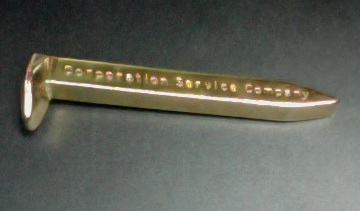UK railways: All aboard the unaffordable express!

At least that's the answer in Britain, where rail prices soared by 5.9 percent with the New Year. A round trip ticket for the 105 miles between my locale - Bristol - and London, is now a mortgage-busting £179 during rush hour. To Americanize that: a Hartford/NYC two-way ticket would cost $277.

I've lived in England for a dozen years, and have watched this happen time after time. Loan sharks should start opening windows next to the ticket booths. How else can the average citizen come up with the dough to climb aboard?
What's worse is that these prohibitive rates reflect, get ready for it - competition! British railways privatized almost 20 years ago. I thought competition was supposed to make anything cheaper, but in this case the country has ended up with regional monopolies that dominate their own neck of the woods. They have names like Southwestern, First Great Western, Northern, Southern, Southeastern, ScotRail, and Virgin, among others.
Yes, they do offer deals if you're able to commit to specific times of off-peak travel - sometimes weeks or months in advance. But if you want to just show up at the station for some frivolous purpose like, say, getting to work, then be prepared to cancel Christmas next year, or something like that.
The rail companies like to blame government policy, which emphasizes a shift away from taxpayer funding of rail costs, and towards rider-based funding. Four years ago, taxes funded 56 percent of network costs, and fares contributed 44 percent. Today, the ratio is reversed, with fares funding 62 percent.
But as rates soar above the rate of inflation, and wages stagnate, something has to give. As then transport secretary Philip Hammond himself said last September, trains had become a "rich man's toy." Now I know what the industry means by the phrase "the golden spike." For many British riders, it's boo-hoo on the choo-choo.
The country needs either a more rider-friendly rail policy, or a train operator that knows how to offer reasonably priced service while still making a respectable profit. A combination of the two might just do the trick.
Photos: Train, FirstGroup. Golden Spike, Corporation Service Corp. via Wikimedia.
This post was originally published on Smartplanet.com
